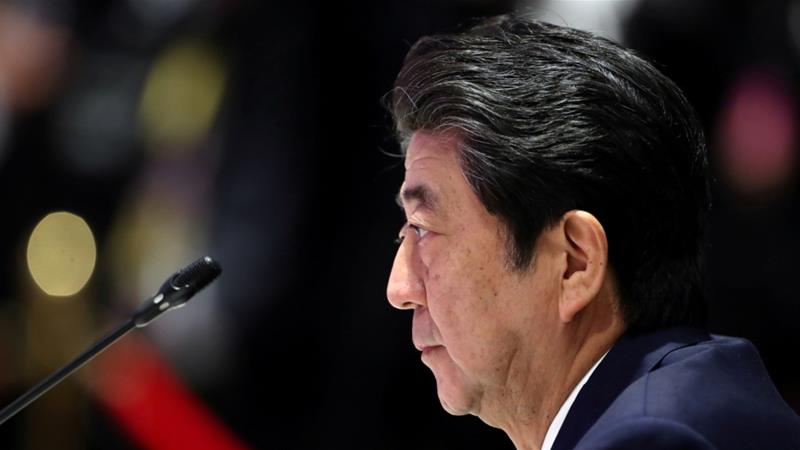The country has struggled with slowing growth due to a slump in exports, a recent sales tax hike and natural disasters.
Japan's Prime Minister Shinzo Abe said on Thursday that his government would compile an economic stimulus package worth about 13 trillion yen ($119bn) in fiscal spending, including an extra budget from this fiscal year and spending earmarked for the 2020 fiscal year.
The package would rise to 25 trillion yen ($230bn) when private-sector and other spending are included, sources told Reuters.
Abe told reporters in Tokyo that the package is designed to aid disaster relief, protect against downside economic risks and prepare the country for what comes after the 2020 Tokyo Olympics.
The government is expected to announce further details of the package later in the day after the cabinet has approved it.
"We managed to compile a strong policy package," Abe told a gathering of governing party legislators and government officials on Thursday.
"It's based on three pillars of ensuring disaster rebuilding and safety, providing intensive support to overcome downside economic risks and sustaining economic vitality after the Tokyo Olympics," he added.
A draft seen by Bloomberg said that the stimulus package will include 13.2 trillion yen ($121bn) in fiscal measures and 9.4 trillion yen ($86bn) in fresh spending.
Of the fiscal measures, government loans and investment programmes would amount to 3.8 trillion yen ($35bn).
The measures would be funded by an extra budget for the current fiscal year and by next year’s budget. The extra budget for the current fiscal year will be about 4.3 trillion yen ($40bn), according to the draft.
With the package, Abe looks intent on minimising the risk of a recession that would tarnish the record of his Abenomics growth programme, while shoring up his own political support after recent scandals.
To that end, an array of measures with a large price tag that can be paid for with the bare minimum of extra borrowing would fit the bill for a country with the developed world’s largest debt load.
Japan's economy is forecast to shrink 2.7 percent in annualised terms this quarter, following a tax hike in October and a destructive typhoon, according to economists surveyed by Bloomberg.
The latest stimulus package would aim to get the economy up and running again, avoiding a further deterioration in global demand that may trigger a recession early next year.
But despite the headline size of the stimulus, economists told Reuters that the effect of the spending will be limited in the near term, because actual spending is expected to be much smaller.
The headline figure is typically inflated with promised loans and private-sector assistance. The 13 trillion yen ($119bn) in fiscal measures is roughly in line with the scale of a 2016 package, but the size of the extra budget is larger than the 3.5 trillion yen ($32bn) required then.
SOURCE: News agencies



